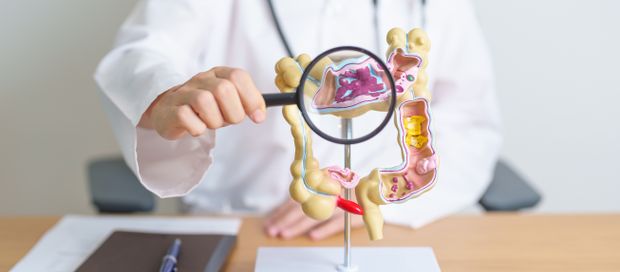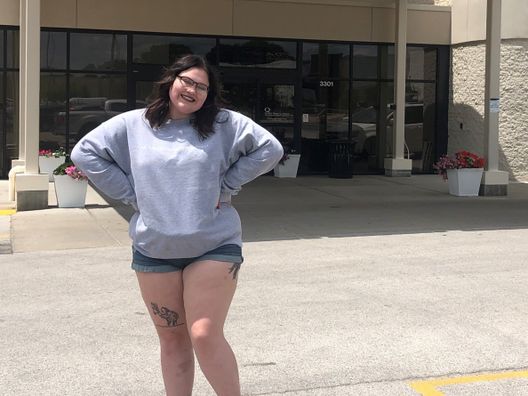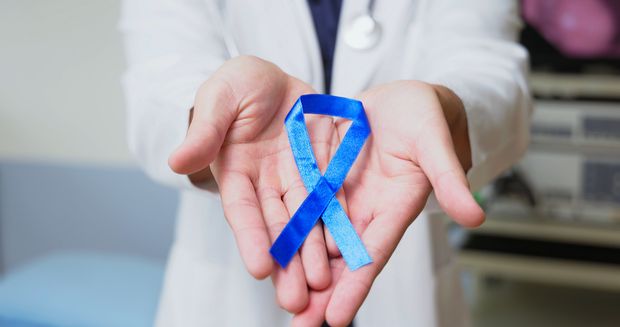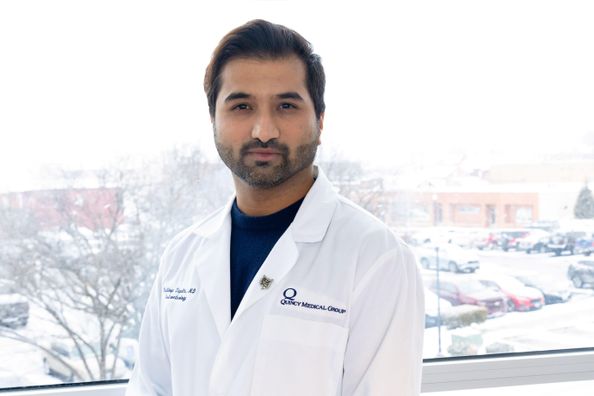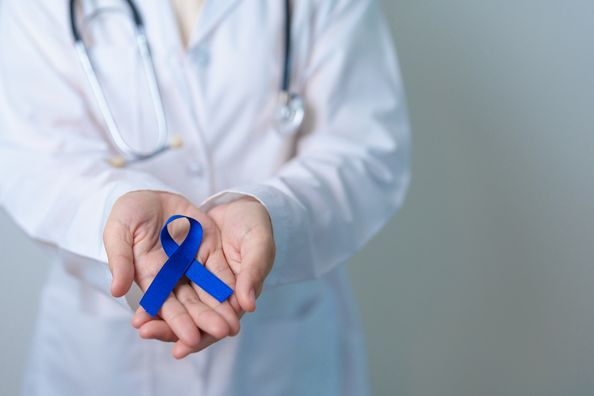Every year in March, we mark National Colorectal Cancer Month to bring awareness to the disease and the importance of screening. Brian Deeds was diagnosed with colorectal cancer in 2021 and shares his story to encourage others to talk to their doctors.
Deeds’ story is a unique one. At the age of 12, he was diagnosed with familial adenomatous polyposis (FAP), after his mother found out she had the condition. FAP is a rare, hereditary condition in which a person develops numerous precancerous polyps called “adenomas” in the large intestine (colon and rectum).
“When my mother was in her 30s, she had a polyp inside of her intestine that was about the size of a grapefruit. She went through 11 weeks of chemotherapy, every week,” he said. “She hasn’t had any problems with it and she’s done her screenings.”
After his mother’s diagnosis, Deeds was checked and his doctor found several large polyps throughout his large intestine. He went to Mayo Clinic where he had his large intestine removed. Since then, he has undergone regular screening with both colonoscopy and endoscopy procedures to monitor and remove polyps. Over the past several years, he’s been under the care of Quincy Medical Group (QMG) Gastroenterologist Dr. John Bozdech.
On the Friday before Memorial Day weekend of 2021, Deeds experienced a dull pain in his stomach that caused him some concern. But he didn’t connect it to his condition, rather to a possible exercise injury.
“The pain was nothing excruciating, but it was something where I just felt better if I was slumped over a little bit. I had it checked out at the ER, but the ER had limited services due to the holiday weekend, so I was ambulanced down to Barnes in St. Louis.”
The day after he arrived to Barnes-Jewish Hospital, Deeds’ body went septic. His kidneys began to shut down and he developed an infection in his abdomen. After two weeks there, Deeds was stabilized and the team performed an MRI and colonoscopy, which led to the discovery of a cancerous tumor five centimeters in size. He was diagnosed with colorectal cancer.
On June 28, Deeds began five consecutive days of radiation treatment at Barnes. The treatment’s effects made it difficult for him to swallow and eat. On July 9, he went to the ER and made a return trip on July 16. On this second trip, he was admitted and an esophageal dilation was performed, which widened his esophagus to 12 millimeters.
His struggles continued. For two months, he was only able to keep soft foods down. He turned to his long-time GI doctor, Dr. Bozdech. At the time of his visit with Dr. Bozdech, Deeds weighed 129 pounds, down from his typical weight of 160 to 165 pounds. After seeing him and hearing his experience, Dr. Bozdech scheduled another esophageal dilation to try to widen his esophagus even more.
“On September 15, Dr. Bozdech did the procedure and he got my esophagus widened to 15 millimeters, just under a half inch. He saw me again on October 4 and got me to 16.5 millimeters. It was just a godsend, and I was finally able to eat food and get weight on and get back to my 160 pounds.”
During this time, Deeds was also undergoing chemotherapy. He completed one round of treatment at Barnes before transferring his care to the QMG Cancer Institute and Medical Oncologist Dr. M. Amjad Ali.
“The best decision I ever made was to continue my care here at QMG. I loved it there,” he shared. “The whole facility is amazing and the staff is amazing. As soon as you walk through the doors, the staff who check you in and out, even though I was only in there every other week, memorized my name. The best way I can describe the place is comforting and inviting,” he said.
Deeds found comfort in the messages along the walls of the waiting room. On one side of the waiting room is a large chalkboard wall for patients, family members, staff, and visitors to leave messages of inspiration, hope, and encouragement. Those words, along with his support the QMG Cancer Institute saw him through his treatment days.
“Chemotherapy is a grind and the positive messages that you read on that wall are so comforting. And, the staff is just the best. I think it’s just the best place,” he said. “That staff is always right there when you need them. They’re so upbeat, so positive, and they’re so knowledgeable. They’re what you need when you’re going through the grind of chemotherapy.”
Following the completion of chemotherapy on December 3, Deeds’ tumor had shrunk and he had surgery to remove it.
Today, Deeds is doing well and continues to be under the care of the QMG oncology and gastroenterology teams. He feels fortunate and encourages others to get screened for colon cancer, something he has done for 30 years.
“In my case, I had to do it, but it’s important for everyone. You may have polyps and not know you have them, they’re silent,” he stated. “Don’t be embarrassed by it, don’t be. It’s an easy procedure, you get to put to sleep and you don’t even know it happened. It can save your life.”
Health Topics:

